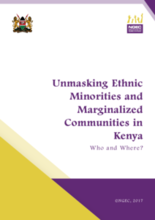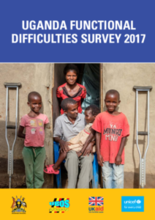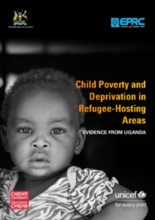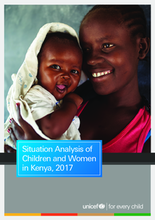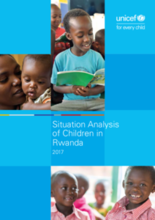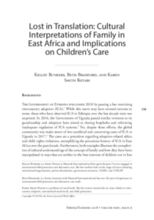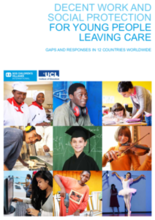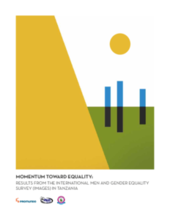Displaying 311 - 320 of 665
This study examined the prevalence of maltreatment and violent discipline from both the adolescents’ and parents’ perspectives.
As part of its mandate the National Gender and Equality Commission (NGEC) undertook a study whose primary objective is to identify minorities and marginalized communities of Kenya, and outline major issues affecting these communities in all counties.
The sections in this report provide an analysis of Uganda’s disability policy and legislative framework and how it is implemented, and emphasizes the need for sound research for development, including statistics.
This study assessed child poverty, deprivation and social service delivery in refugee and host communities in selected districts in the country’s three major refugee-hosting areas: West Nile, a sub-region of Northern region that borders South Sudan; the country’s South West, which borders the DRC and Rwanda; and the capital, Kampala.
The report presents an overview of the Situation of Children and Women in Kenya using the results of the most significant research and analysis between 2014 and 2017 in areas related to the wellbeing of children and women.
This situation analysis provides a timely assessment of progress for children, achievements to date, and remaining challenges and barriers to the realization of children’s rights in Rwanda.
This article explores Intercountry Adoption (ICA) practices and the related expansion of orphanages (also referred to as residential care) in the East African context.
The aim of this report from SOS Children's Villages is to increase the knowledge and understanding of the needs and rights of young people ageing out of alternative care around the world, in order to inform strategies, policies and services to improve their life chances and outcomes through appropriate preparation for leaving care as well as after-care support.
The present study has thoroughly examined the experiences and perspectives of left-behind children of migrant mothers in Addis Ababa and Sinana district.
The International Men and Gender Equality Survey (IMAGES) is a comprehensive, multi-country study on men’s and women’s realities, practices, and attitudes with regard to gender norms, gender-equality policies, household dynamics, caregiving and fatherhood, domestic violence, sexual diversity, health, and economic stress, among other topics.

